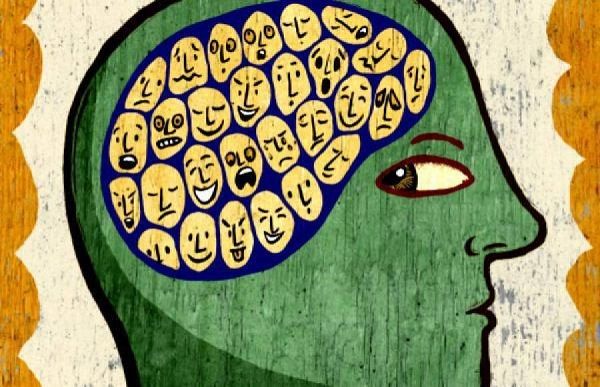Lessons of emotional intelligence for young and adults

The emotional Intelligence is an important step towards building a new culture of life.
The fear
Nelson Mandela has said that he is not the one who is not afraid, but the one who succeeds in overcoming fear. It is good to assume that fear is real and normal. Usually, it is not spoken of, because this is considered a weakness. But the stress, the nervous tension, the stomach ball are all symptoms of fear. We can reduce its strong impact by reducing its significance. We can face fear and set out an action plan to deal with it. Surely we all have enough strength to stand against our fears and not let the fear of paralyzing us. We can always ask friends, teachers, relatives for help and tell them what's going on with us. The challenge is not to go through a situation that horrifies us. Looking at the future, though it exists only in our minds, we will always find new incentives and new challenges. Child's fear may have a different background. If we are not serious or pathological fears, we can help the little ones by giving them positive information about the world that surrounds them and about the events that are ahead. We should never resort to violent stimuli that are commonplace on television.

The Sadness
In today's society, our sadness is growing. To alleviate its impact, psychologists advise that we do not shut up, stay active, carry out our duties, even if they are quite modest. Reaching something helps us build a more joyful state of mind. There are, however, different kinds of sadness and different ways to deal with it: Melancholy: We, adults, know this feeling very well. We do something like a mental review of our experience and we feel emptiness, even though we know we have no objective reasons to be sad. Children, especially when they are mature, also know the melancholy. We can help them by showing respect for these moments, but we also reassure them. Let them feel that we are next to them. Psychological sadness: We can distinguish the original reason that everyone is able to understand and share. We can teach ourselves and others how to govern it if we admit it is a normal feeling that diminishes if we work on the cause and try to think soberly. Depressed sadness: Unlike psychological, depressed sadness, there is often no apparent reason. If we think we are experiencing depressive sadness, we should be left in the hands of a psychologist or psychiatrist.

The anxiety
The mind tends to jump back and forth, to the past and to the future. As I head to the future, it unleashes thoughts; sometimes obsessive - related to anxiety and fear. In this case, our remedy is the action that keeps us in touch with the moment, it returns us to "here"; and "now" to the only thing we really have. A possible way to deal with the situation is that every day we set a few minutes for "worries", but really for a short time, not for a long time. Thus, in time, we will acquire the hygiene of the mind. Nurturing the senses, focusing on what we see, smell and touch, it is useful to get back to the present and be glad.
thank you... Sadness is growing. Despite the bright lights of comfort and amenities, sadness and loneliness is growing :)
Fear is normal. Yes. Thank you! Fear is a natural tool for self-preservation. But so often we reject the notion of being afraid. We reject (and therefore, fear) fear.
By rejecting fear and refusing to consciously acknowledge not only what scares us, but our feelings in general, we condemn them to the subconscious. Just because we don't want to look at something doesn't mean it's not there. There, it festers and grows out of control, making us more uneasy (dis-eased) and anxious. Until it bubbles up to the surface as a behavioral issue, mental illness, physical illness, or circumstance.
Bodily maintenance goes on under the threshold of awareness. The subconscious simply receives impressions garnered from sensory experience and self-conscious suggestion. The subjective mind is like a blank page. It perfectly records all of our daily activities without reservation or censorship. Whatever we spend most of our time doing or thinking about during the day is directly impressed upon the subjective mind. The subconscious has perfect recollection.
Any resistance or tension felt, which is immediately cut off by the objective mind, goes straight into the subconscious. The subjective mind doesn't discriminate -- it grows what's been planted. And when extreme tension and resistance has been recorded with no outlet for expression, what do you think gets built into the body?
It's a feedback loop -- if it's not actively released, it goes inward. The subconscious mind reacts and creates (through the organism) with the seeds it's been given; good (health) or bad (sickness).
@originalworks
The @OriginalWorks bot has determined this post by @godflesh to be original material and upvoted(1.5%) it!
To call @OriginalWorks, simply reply to any post with @originalworks or !originalworks in your message!
img credz: pixabay.com
Nice, you got a 77.0% @lays upgoat, thanks to @cocacho
It consists of $4.47 vote and $1.49 curation
Want a boost? Minnowbooster's got your back!
img credz: pixabay.com
Nice, you got a 77.0% @peaceandlove upgoat, thanks to @godflesh
It consists of $16.49 vote and $5.5 curation
Want a boost? Minnowbooster's got your back!